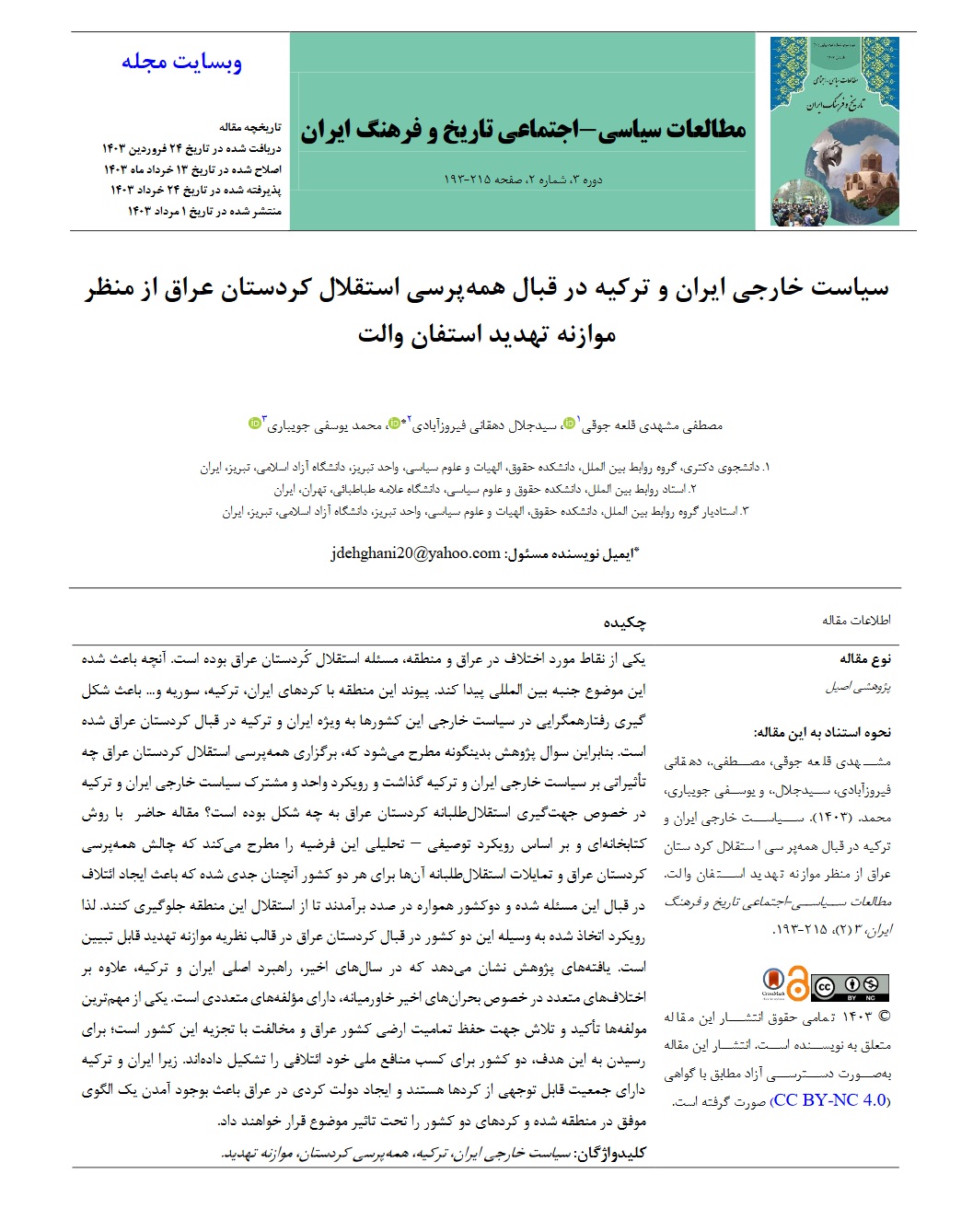Iran and Turkey's Foreign Policy Regarding the Kurdistan Independence Referendum in Iraq from the Perspective of Stephen Walt's Balance of Threat Theory
Keywords:
Iran's foreign policy, Turkey, Kurdistan referendum, Balance of ThreatAbstract
One of the points of contention in Iraq and the region has been the issue of the independence of Iraqi Kurdistan. What has made this issue international in scope is the connection of this region with Kurds in Iran, Turkey, Syria, etc. This linkage has led to convergent behavior in the foreign policies of these countries, particularly Iran and Turkey, concerning Iraqi Kurdistan. Therefore, the research question arises: What impacts did the Kurdistan independence referendum have on the foreign policy of Iran and Turkey, and what has been the unified and common approach of Iran and Turkey's foreign policy regarding the independence-oriented orientation of Iraqi Kurdistan? This article, using a library-based method and based on a descriptive-analytical approach, posits the hypothesis that the challenge of the Kurdistan referendum and their independence aspirations have become so serious for both countries that it has led to the formation of an alliance regarding this issue, and both countries have always sought to prevent the independence of this region. Hence, the approach taken by these two countries concerning Iraqi Kurdistan can be explained within the framework of the Balance of Threat theory. The research findings indicate that in recent years, the main strategy of Iran and Turkey, despite numerous differences regarding recent Middle East crises, includes several components. One of the most important components is the emphasis and effort to preserve the territorial integrity of Iraq and opposition to its fragmentation. To achieve this goal, the two countries have formed an alliance to secure their national interests. This is because Iran and Turkey have significant Kurdish populations, and the creation of a Kurdish state in Iraq would establish a successful model in the region and influence the Kurds in both countries.
Downloads







